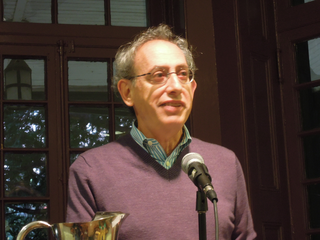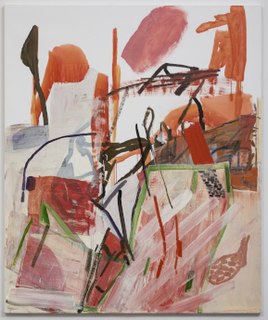A Quote by Robin S. Sharma
I buy a lot of books I never read. But that's not really a waste, since all it takes is one idea from even one book to radically reshape the way a person leads, thinks and lives.
Related Quotes
I have learned that my assignment is to write books for people who do not like to read books. I really try to connect with people who are not given to spending a lot of time with an open book. Pay day to me is when somebody comes up to me and says, "I never read books but I read yours." I have a heart for that person.
I believe in the magic of books. I believe that during certain periods in our lives we are drawn to particular books--whether it's strolling down the aisles of a bookshop with no idea whatsoever of what it is that we want to read and suddenly finding the most perfect, most wonderfully suitable book staring us right in the face. Unblinking. Or a chance meeting with a stranger or friend who recommends a book we would never ordinarily reach for. Books have the ability to find their own way into our lives.
It takes me about a week and a half to read the typical book. I don't know how many ten-day spans I have left. Eventually the unread books on my shelves will have to be abandoned, or they will join me on the pyre. The book I'm about to purchase may be among them. We all buy books we won't live to read.
Books can be possessive, can't they? You're walking around in a bookstore and a certain one will jump out at you, like it had moved there on its own, just to get your attention. Sometimes what's inside will change your life, but sometimes you don't even have to read it. Sometimes it's a comfort just to have a book around. Many of these books haven't even had their spines cracked. 'Why do you buy books you don't even read?' our daughter asks us. That's like asking someone who lives alone why they bought a cat. For company, of course.
Books are good but they are only maps. Reading a book by direction of a man I read that so many inches of rain fell during the year. Then he told me to take the book and squeeze it between my hands. I did so and not a drop of water came from it. It was the idea only that the book conveyed. So we can get good from books, from the temple, from the church, from anything, so long as it leads us onward and upward.
The iPod is clearly a tipping point (and I'm not quite sure it is a wholly positive development), because it is a revolution in the way that we consume creative property, which I would call art. It has radically changed the relationship between the artist and the audience, how money changes hands, and how much money changes hands. Music was the first, and books are coming next. The Kindle or some form of electronic book is clearly inevitable, and it will massively reshape how books are sold, who pays for them, and how they're consumed. It is going to be really fascinating.
I feel lucky that I read so many books as a kid because I know that no matter how much I appreciate a book now, and I can love a book very much, it's never going to be that childhood passion for a book. There's some element, something special about the way they're reading books and experiencing books that's finite.
You can't write a book if you've never read a book. And if you've read five books and you try to write a book, your book will mainly encompass the themes and the context of the five books you've read. Now, the more books you read, the more you can bring to a book when you decide to write one. So the more rap I learned, the more I was able to bring to rap when I decided to rap. But this was all subconscious.




































